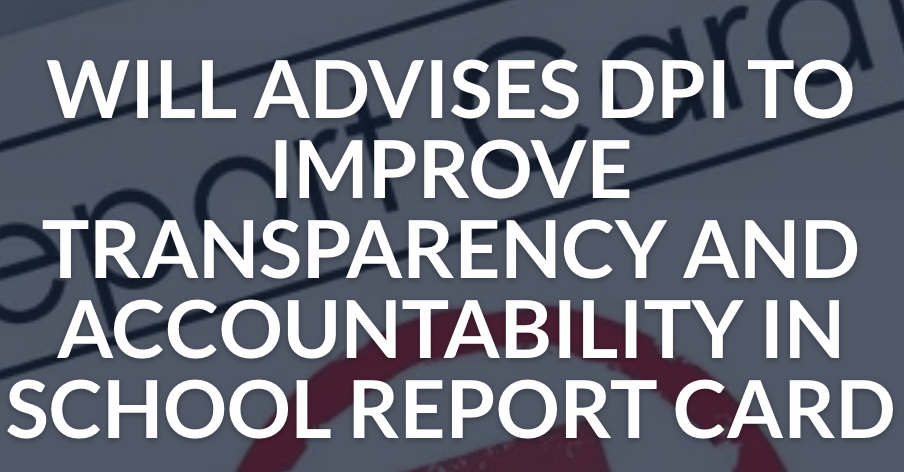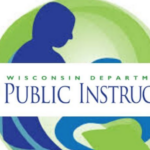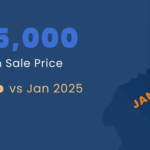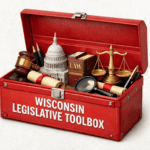The Wisconsin Institute for Law & Liberty (WILL) submitted a detailed set of recommendations to the Wisconsin Department of Public Instruction (DPI) on Tuesday, calling for a sweeping reform of the state’s school report card system.
The move comes amid growing concerns over inflated ratings, inconsistent standards, and a lack of transparency under State Superintendent Jill Underly’s leadership, which critics argue masks a decades-long stagnation in student achievement.
WILL’s analysis, outlined in a letter to DPI, points to significant flaws in the current accountability system. The group highlighted cases where schools with alarmingly low proficiency rates received inflated ratings. For example, one school with just 4.1% of students proficient in English Language Arts (ELA) was rated “Exceeds Expectations,” while 18 schools statewide earned the same rating despite less than 25% ELA proficiency. WILL’s research director, Will Flanders, criticized the system, stating, “Wisconsin is falling behind the rest of the country academically, and changing standards only masks this decline. Instead of raising the bar, we are simply putting our heads in the sand.”
The recommendations arrive as DPI faces mounting scrutiny for its handling of school report cards and testing benchmarks. The Dairyland Sentinel has reported extensively on the agency’s reluctance to release public records related to changes in the Forward Exam’s performance thresholds, enacted under Underly’s direction in the 2023-24 school year.
These changes, which lowered proficiency cutoffs and altered terminology, have drawn bipartisan criticism from figures like Republican Assembly Speaker Robin Vos and Democratic Gov. Tony Evers, who argue they obscure declining student outcomes. Despite Evers’ initial objections, he later vetoed legislation aimed at reversing Underly’s changes.
WILL’s analysis compared DPI’s ratings to those of GreatSchools, an independent platform used by parents to evaluate schools. Examining 309 schools across Wisconsin’s six largest districts, WILL found that 50% received higher ratings from DPI than from GreatSchools, while only 3% were rated higher by the independent system. This discrepancy, WILL argues, suggests DPI’s ratings are overly generous, failing to reflect the state’s academic challenges, including a literacy crisis where two-thirds of students cannot read at grade level, according to National Assessment of Educational Progress (NAEP) data.
To address these issues, WILL proposed two key reforms. First, DPI should adopt more rigorous cut points for report card ratings to align with actual student proficiency, eliminating grade inflation. Second, the agency should reform its economic status sliding scale, which WILL contends overcompensates for poverty and skews ratings. “Families across Wisconsin deserve a report card that is clear, accurate, and consistent,” Flanders said, emphasizing the need for DPI to restore public trust following last year’s controversial Forward Exam changes.
The push for reform coincides with broader efforts to hold DPI accountable. On Feb. 26, 2025, the Joint Legislative Audit Committee, co-chaired by Sen. Eric Wimberger, R-Oconto, and Rep. Robert Wittke, R-Caledonia, launched an audit into DPI’s school report card process and testing standards. The committee’s action aligns with the Dairyland Sentinel’s ongoing battle to obtain records about Underly’s revisions, which cited the input of “nearly 100 experts” but provided little detail on their selection or discussions.
DPI, meanwhile, has defended its efforts, with Underly announcing on May 27, 2025, the formation of a panel of education leaders to review report card rating thresholds. The group, facilitated by the Center for Assessment, will propose new score ranges for the 2024-25 report cards, set for release this fall. Underly framed the review as a necessary update, saying, “Just as you wouldn’t rely on a decade-old GPS to find your way today, we can’t use outdated performance benchmarks to guide school improvement.” Critics, however, remain skeptical, citing DPI’s history of unilateral changes and incomplete responses to records requests.
Previously at Dairyland Sentinel














